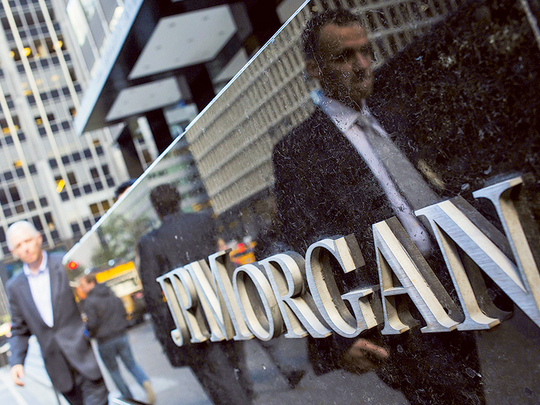
New York: Wall Street’s biggest banks are expected to hit the corporate bond market after they report quarterly results in an effort to raise money before the Federal Reserve knocks borrowing costs higher.
JPMorgan Chase & Co. credit research analysts Kabir Caprihan and Nikita Dyatlov expect big banks to borrow a combined $24 billion to $32 billion following their earnings reports. Citigroup Inc., Wells Fargo & Co. and JPMorgan itself all announced results this past week.
“That said, we do think the bias is on the upside and will not be surprised if we see closer to $35-$38 billion,” the analysts wrote in a note Tuesday. Even if banks decide to sell bonds next week, issuance is still likely to be down due to Martin Luther King Jr. Day on Monday and an earnings blackout period.
United Airlines Holdings Inc., American Airlines Group Inc. and streaming provider Netflix Inc. are on tap to report next week, which could impact bond prices. Netflix is poised to become a rising star this year with about $16 billion equivalent of bonds eligible for Bloomberg’s high-grade indexes, according to Bloomberg Intelligence credit analysts Stephen Flynn and Suborna Panja.
Shorter bets
Investors are looking to shorter-term bonds as they grow more concerned about rising yields, which can hit longer-term bonds hardest. As of Thursday, 41% of issuance in the investment-grade market has been in the 10 year-or-greater part of the curve, compared with about 48 per cent in 2021 and 58 per cent in 2020.
“We love shorter dated credit as a natural hedge against inflation, rising rates and potentially deteriorating credit fundamentals,” said Hunter Hayes, senior vice president and portfolio manager of the Intrepid Income Fund at Intrepid Capital Management. Hayes sees opportunities for bonds maturing in the next couple of years for both investment-grade and high-yield markets.












